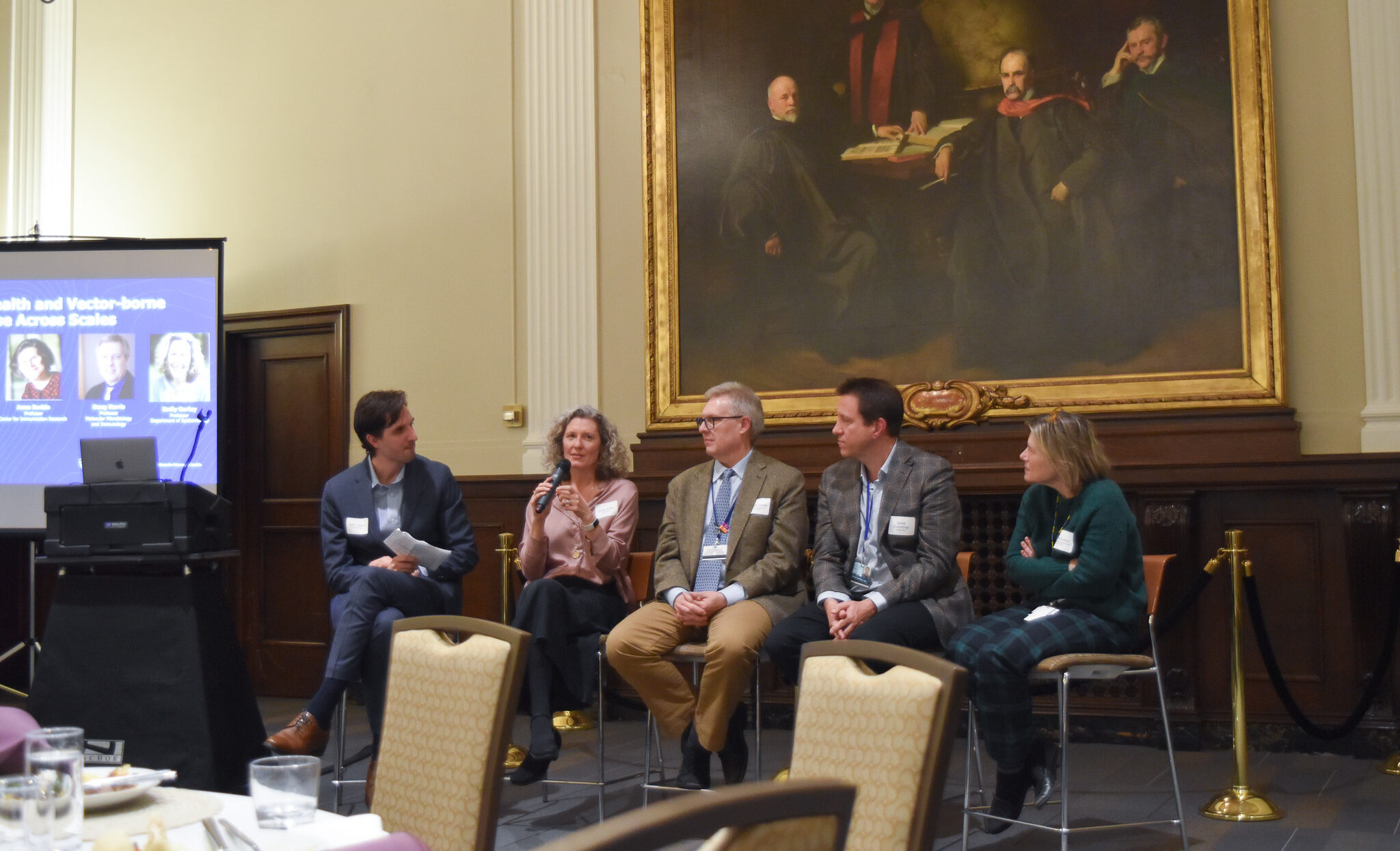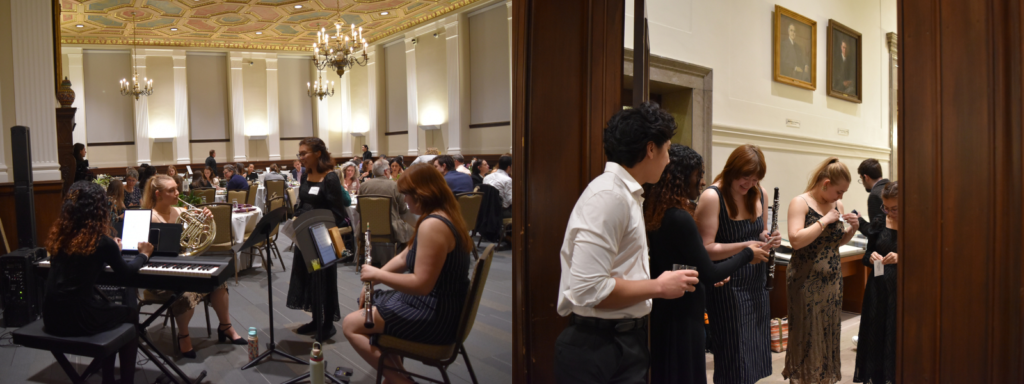
March Planetary Health Dinner
In March, members of the Johns Hopkins Institute for Planetary Health community gathered to explore how Planetary Health can inform research and interventions for emerging infectious diseases, focusing on vector-borne diseases.
As part of this event, JHIPH was delighted to collaborate with the Peabody Institute to debut Duwendes, an original composition by Olena Kilbury, a third-year Bachelors of Music student in Composition and Music Education. She was joined by fellow Peabody students:
- Parker Tremaine, BM in Classical Oboe Performance
- Suzanka Belik, BM in Classical Horn Performance,
- Kisiah Waters, BM in Classical Piano Performance
Inspired by Filipino mythological creatures, Duwendes captures their playfulness, beauty, and the cautionary message of respecting nature. The piece serves as a call to action to protect the earth and honor the homes of both the Duwendes and humanity.

Following the performance, Seth Judson, infectious disease physician-scientist at Johns Hopkins Medicine moderated a panel of experts in ecology, epidemiology, infectious disease modeling, and translational research, which was followed by a broad ranging Question and Answer session. Panelists included:
- Derek Cummings, Professor, Department of Epidemiology, Bloomberg School of Public Health (BSPH)
- Anna Durbin, Professor, Center for Immunization Research, BSPH
- Doug Norris, Professor, Department of Molecular Microbiology and Immunology, BSPH
- Emily Gurley, Professor, Department of Epidemiology, BSPH
Key Themes & Discussion Points
- Drivers of vector-borne & zoonotic disease outbreaks: Climate change, human mobility, and urbanization, among other complex factors, are driving an increase in zoonotic and vector-borne disease outbreaks. The panel emphasized how Planetary Health provides a framework for addressing these issues across scales and domains, thinking both locally within communities but also on a global level.
- Challenges and knowledge gaps in vector-borne diseases: Experts highlighted the need for proactive research and surveillance to better understand emerging infectious diseases. They stressed the importance of recognizing the heterogeneity of risk across different settings, especially in a rapidly changing environment.
- Role of urban design in disease control: Connecting to last month’s discussion on Planetary Health Cities, the panel explored how urban design can reduce mosquito-borne disease risks. Strategies such as improving solid waste management and designing homes in ways that prioritize both environmental health and mosquito control were recognized as crucial investments for long-term disease prevention.
- Interdisciplinary collaboration: Effectively addressing emerging infectious diseases requires integrating diverse perspectives from fields such as entomology, medicine, epidemiology, and anthropology. This demands clear communication across scientific disciplines and funding mechanisms that support large-scale, cross-disciplinary research. Equally important is engaging experts from social sciences, humanities, and science communication to ensure effective research design and convey the significance of research, ensuring the public understands its impact on daily life and the need for continued investment.

Join Us
Together, we can drive meaningful change for the planet and its people. Subscribe to our mailing list and join JHIPH’s growing community now.

